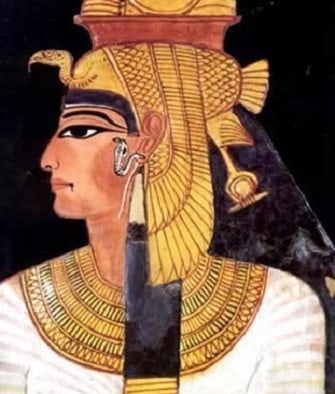Introduction - Ancient Egypt
Ancient Egypt was one of the greatest civilizations in history. From its beginnings as small settlements along the Nile River over 6,000 years ago it developed into one of the world's first major civilizations. This culture reached amazing levels of sophistication in areas such as science, architecture, art, and literature. The ancient Egyptians pyramids, temples, and other architectural achievements still standing serve as symbols of the greatness of this long gone civilization.Click here for a great selection of Amazon.com books about Ancient Egypt.
In the lists of facts below and on the other pages of this site you will find interesting information about this old civilization. You will find answers to such questions as where was ancient Egypt, how did it developed into such a great society, what are some of its great accomplishments, and when and why did this ancient culture end?
General Ancient Egypt Facts
- The emergence of Egypt as one of the first great civilizations on earth can be tied to its location in the Nile River Valley. This fertile valley with it's predictable annual flooding enabled the people of the area to grow a surplus of crops. With plenty of food available the people were able to turn their attention to other things which led to the development of this great society.
- The unification of Upper Egypt and Lower Egypt around 3100 B.C. centralized power under one king (pharaoh) and enabled the unified society to achieve greatness. The ancient Egyptians themselves regarded this as the most important event in their entire history.
- The size of the kingdom varied over time but it always centered around the Northern portion of the Nile River in Africa.
- Ancient Egyptian history is divided into three kingdoms which are separated by Intermediate Periods of instability. The kingdoms were:
- Old Kingdom (Early Bronze Age)
- Middle Kingdom (Middle Bronze Age)
- New Kingdom (Late Bronze Age)
- Egypt reached the height of its power in the New Kingdom.
- When did ancient Egyptian civilization end? There is not a straight forward answer to this question. The civilization had been in decline for many years when Alexander the Great conquered it in 332 BC. Upon Alexander's death one of his generals, Ptolemy Soter, took control. His family controlled Egypt until 30 BC. In 30 BC it fell to the Roman Empire, while under the rule of the famous queen Cleopatra, and was made a Roman province.
Interesting Ancient Egypt Facts
- The ancient Egyptians form of writing is called hieroglyphs. It was deciphered by Francois Champollion in 1822. He was able to accomplish this by examining the Rosetta Stone which was an old stone discovered by French soldiers in Egypt. The stone had writing on it in both Egyptian and Greek.
- The ancient Egyptians were very religious. Many aspects of their lives were influenced by religious beliefs. They believed in many gods and goddesses.
- The people of ancient Egypt were the first known people in the world to believe in life after death. Their belief in the afterlife led them to attempt to preserve dead pharaohs and others as mummies and to build the great pyramids and other spectacular tombs for their leaders.
- The largest Egyptian pyramid ever built is the Pyramid of Khufu at Giza. Out of all the Seven Wonders of the ancient world it is the only one still standing.
- In 2017 researchers at the University of Zurich concluded that the skeletal remains of what is believed to be the Third Dynasty Pharaoh Sanakht proved he suffered from gigantism. The skeleton, discovered in an ancient tomb near Khallaf Egypt, was of a man who would have stood over 6 feet (1.8 meters); almost a foot (30 centimeters) taller than the average person of that time. This is the oldest case of gigantism ever discovered.
